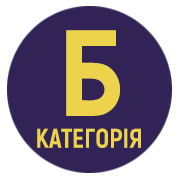REGULATORY AND LEGAL PRINCIPLES OF THE DIGITAL TRANSFORMATION OF HIGHER EDUCATION IN THE REPUBLIC OF POLAND
DOI:
https://doi.org/10.32782/ped-uzhnu/2023-2-3Keywords:
higher education, digitalization, legal basis, digital transformationAbstract
Digital transformation affects all spheres of life, including the system of education and professional training of teachers. The importance of the development of digital competences has been emphasized by international organizations for many years, but unfortunately, these actions in the educational sphere have not resulted in revolutionary changes. The vision of the future, which includes the digitalization of education, arose almost instantly and there is no way back from these processes for humanity today. The article analyzes official documents, statistical data and materials on issues of higher education, professional education and training in EU countries and the Republic of Poland. The issues of digitalization of higher education in the Republic of Poland are currently regulated by the following legal acts. These legal acts are supplemented by numerous executive documents issued in the form of orders, recommendations of the Ministry of National Education and the Ministry of Higher Education and Science. An important role in the regulation of education and upbringing in Poland is also played by the acts of local self-government bodies, which are issued on the basis of the powers of local self-government units. The expectations of the modern information society require constant and systematic review and updating of the legal framework on digitalization of higher education in the Republic of Poland. Therefore, in order to support the professional training of highly qualified specialists, systematic measures should be implemented in the legislative field on issues of digitization of education. Modernization of the legal framework for the digitalization of professional training of teachers in the Republic of Poland takes place in accordance with the requirements of the European educational space and the activities of international organizations regarding the digitalization of education, the formation of digital literacy and competencies.
References
Біницька К. Підготовка майбутніх учителів початкової освіти у країнах Східної Європи: теорія і практика : монографія / за наук. ред. Г. Терещука. Хмельницький : видавець ФОП Цюпак А.А. 2018. 376 с.
Digital Competence Framework for Educators. European Commision. URL: https://joint-research-centre.ec.europa.eu/digcompedu_en (дата звернення: 27.12.22).
Edukacja dla Europy: raport Komisji Europejskiej, Komitet Prognoz «Polska 2000 Plus» przy Prezydium PAN. Warszawa 1999. S. 361–365.
Edukacja і szkolenia, 2020. URL: http://ce.zabrze.pl/upload/projekty/2.Co%20to%20jest%20ET%202020.pdf (дата звернення: 25.09.22).
Edukacja – jest w niej ukryty skarb: raport dla UNESCO Międzynarodowej Komisji do spraw Edukacji dla XXI wieku / pod przewodn. Jacques’a Delorsa. Warszawa : Stowarzyszenie Oświatowców Polskich : Wydawnictwa UNESCO, 1998. 288 р.
Konstytucja Rzeczypospolitej Polskiej, Art. 70. URL: https://www.sejm.gov.pl/ prawo/konst/polski/kon1.htm. (дата звернення: 28.12.22).
Kwiek M. Reforma szkolnictwa wyższego w Polsce i jej wyzwania. Jak stopniowa dehermetyzacja systemu prowadzi do jego stratyfikacji. Nauka i Szkolnictwo Wyższe. 2017, 2(50). S. 9–38, s. 10.
Lubina E. Zmiany funkcji nauczyciela w nauczaniu na odległość. 2004. URL:https://www.e-mentor.edu.pl/artykul/index/numer/6/id/80.
Jabłonowska M., Wiśniewska Ju. Europejskie ramy kompetencji cyfrowych nauczycieli – kluczowe obszary badania poziomu umiejętności i ich implikacje. Edukacja ustawiczna dorosłych. 2021, 1. S. 51.
Ministerstwo Administracji i Cyfryzacji. Społeczeństwo informacyjne w liczbach. 2014. URL: https://www.gov.pl/web/cyfryzacja/raporty-dane-badania (дата звернення 25.12.22).
Polskie badanie EU Kids Online 2018. URL: https://depot.ceon.pl/bitstream/handle/123456789/17037/EU_Kids_Online_2019_gotowe.pdf?sequence=1&isAllowed=y (дата звернення 25.12.22).
Program Rozwoju Kompetencji Cyfrowych – projekt lipiec 2022. URL: https://www.gov.pl/attachment/2846a1a3-f583-4a37-a69c-ec907b9245cd (дата звернення 25.12.22).
Sysło M.M. Potrzeba szerszych zmian w kształceniu informatyczny. 2022. URL: https://www.edunews.pl/badania-i-debaty/opinie/5901-potrzeba-szerszych-zmian-w-ksztalceniu-informatycznym (дата звернення: 25.09.22).
Systémy edukacji w Europie – stan obecný i planowane reformy. Luksemburg, listopad 2011. Docplayer. URL: http://docplayer.pl/6565248-Systemy-edukacji-w-europie-stan-obecny-i-planowane-reformy-luksemburg.html (дата звернення: 19.12.22).
Ustawa z dnia 14 grudnia 2016 r. Prawo oświatowe. Dz.U. 2017 poz. 59 URL: https://isap.sejm.gov.pl/isap.nsf/DocDetails.xsp?id=wdu20170000059 (дата звернення: 25.12.22).
Ustawa z dnia 7 września 1991 r. O systemie oświaty. Dz.U. 1991 Nr 95 poz. 425. URL: https://isap.sejm.gov.pl/isap.nsf/DocDetails.xsp?id=wdu19910950425 (дата звернення: 25.12.22).
Ustawa z dnia 27 października 2017 r. O finansowaniu zadań oświatowych. Dz.U. 2017 poz. 2203. URL: https://isap.sejm.gov.pl/isap.nsf/DocDetails.xsp?id=WDU20170002203 (дата звернення: 25.12.22).
Ustawa z dnia 20 lipca 2018 r. Prawo o szkolnictwie wyższymi nauce. Dz.U. 2018 poz. 1668. URL: https://isap.sejm.gov.pl/isap.nsf/DocDetails.xsp?id=WDU20180001668 (дата звернення: 25.12.22).







